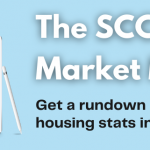Khamis: Overregulation Forcing Mom-and-Pop Housing Providers to Give Up
By Johnny Khamis
Covid has not only had devastating effects on our health, but it has also wreaked havoc on our economy. Our favorite restaurants and retailers are going out of business and taking their jobs and tax revenues with them. Unfortunately, we know that lost jobs lead to other issues like the inability of renters to pay their rents and homelessness. What people don’t understand is that many of the mom-and-pop owners of rental properties are also struggling to stay afloat.
In the past 8 years, many new laws and regulations have reduced housing providers’ ability to raise rents and remove problem tenants through eviction and rent increase moratoriums. New regulations have also forced them to respond to time-consuming bureaucratic requirements like rent registries. Many mom-and-pop housing providers have had to hire staff and expensive lawyers just to keep up with the ever changing government regulations. A new survey from the Santa Clara County Association of REALTORS® (SCCAOR) shows that nearly half are ready to sell and get out of the business altogether.
Thankfully the state has started to recognize that local and state laws are putting hard-working housing providers out of business. Recently, California passed SB91 which reimburses housing providers up to 80% of their unpaid rents as long as renters meet certain qualifications.
- The program is voluntary for housing providers to participate and apply but they will only be able to receive up to 80% of unpaid back rent and must forgo the remaining 20%.
- Tenants of housing providers who do not opt in to the program will be eligible to apply for 25% payment of unpaid rent so they receive monthly protection from the statewide eviction moratorium.
The bill prioritizes households with the highest need for rent relief, targeting lower Area Median Income (AMI) categories first.
- Round 1: Below 50% AMI or unemployed for 90 days.
- Round 2: Income below 80% AMI and in a community disproportionately impacted by COVID-19.
- Round 3: Everyone below 80% AMI not addressed in round 1 or 2 above.
But is SB91 really going to help renters and struggling property owners?
SCCAOR interviewed several owners and found that in some cases, tenants making more than 80% of the AMI are still struggling financially and not paying rent. This leaves housing providers and tenants alike in a tough spot as they have no path to receive assistance through SB91.
Owners are also worried that the paperwork will be overwhelming to tenants and owners alike and require a lot of time and effort to fill out. They also fear that the $2.6 billion will not be enough to even cover the promised 80% of unpaid rents. In fact, over 45% of the small property owners we surveyed did not receive their full rent.
In the meantime, SCCAOR’s survey shows that 70% of the owners have mortgages, property taxes, and other expenses that must be paid even if they are not receiving rent or aid. Owners like Carlos Padilla have worked hard to find resources for tenants who can’t pay their rent and to protect his lifetime investment. When asked about his tenants who lost their jobs, Carlos said that “they have filled out numerous forms from nonprofits and other non-government organizations with no results and no feedback.”
Owners are now questioning how much longer they can hold on to their investments with all the new levels of bureaucracy and moratoriums. They hope that SB91 can help them and their tenants avoid selling and leaving California or going bankrupt.


